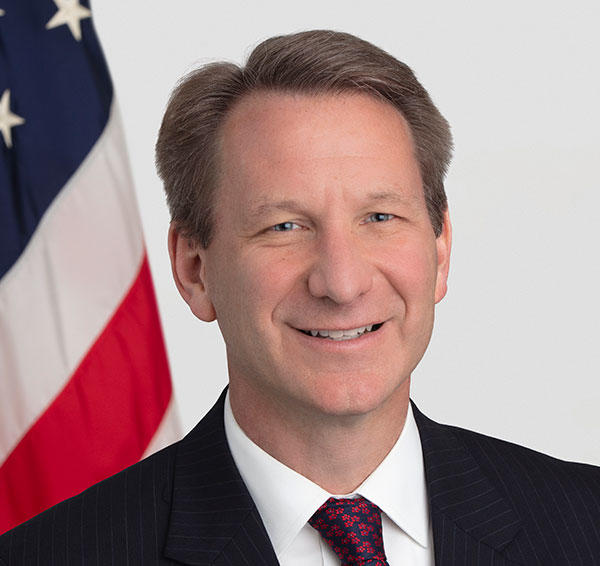Familiar Fiscal Challenges for NCI
, by NCI Director Dr. Norman E. Sharpless
With every fall comes a new fiscal year for the NCI, where we often find ourselves living under a Continuing Resolution (CR). As of December 3, Congress has extended a CR for NCI’s FY 2022 funding, meaning we are operating under interim paylines. In this blog, Dr. Sharpless expands on what that means for NCI’s grantee community, and how that affects both competing and noncompeting grants.
Autumn in the nation’s capital is a time to enjoy the familiar signs of fall: cooler weather bringing relief from summer heat, vibrant foliage spreading its colorful splendor across the landscape, and migratory birds filling the Atlantic flyway as they wing toward their winter habitat.
For federal agencies like NCI, autumn also brings a new fiscal year. As in past years, the October 1 start of our fiscal year prompted a recurring financial challenge: how to prudently plan NCI operations for the next 12 months based on a temporary, interim budget.
Whenever Congress and the President can’t agree on a budget by October 1, NCI and other federal agencies start the new fiscal year with limited, short-term funding based on legislation known as a continuing resolution (CR). Congress often passes multiple CRs until they reach an agreement on a final budget for the year.
Since October 1, 2021, NCI has been operating under a CR. A more detailed explanation of CRs and their challenges appears in our December 2019 Bottom Line Blog.
This year, the first CR funded NCI programs from October 1 through December 3, 2021. A second CR, which the President signed into law on December 3, extends NCI funding through February 18, 2022. As a result, NCI will experience budget uncertainty for more than 140 days this fiscal year.
Consequences of a CR for the Grants Community
What does this budget uncertainty mean for the NCI grantee community? Until February 18, and possibly longer, NCI won’t know how much funding we will have for the current fiscal year. It’s possible that NCI will be funded under a CR for all of fiscal year 2022, so NCI is monitoring that possibility as well.
Faced with this situation, the most prudent approach is for NCI to adopt a conservative, provisional spending plan, including funding for extramural grants. This interim plan only commits funding that NCI can sustain until we receive our final budget for the year. Other National Institutes of Health institutes and centers face the same challenge.
NCI Provisional Competing Grants Policy
This budget uncertainty has significant consequences for our grantees. Although NCI will reconsider its provisional policies once we receive our final appropriation, the interim paylines for competing grants displayed below reflect a cautious approach given the nature of a CR. These interim paylines have been in effect for all competing grants issued since October 1.
|
NCI Interim Paylines FY 2022 Competing Grants |
|
|---|---|
| Grant Type | Interim Payline |
| R01 Grants for Established & New Investigators | 9th Percentile |
| R01 Grants for Early Stage Investigators (ESIs) | 14th Percentile |
| R21 Exploratory Grants | 9th Percentile |
We hope to improve paylines when NCI receives a final appropriation and we have greater financial certainty.
NCI Provisional Noncompeting Grants Policy
The situation for noncompeting grants echoes the budget outlook for competing awards. Fiscal uncertainty dictates the need for a careful approach, so NCI will pay most noncompeting grants at 90% until the fiscal picture is clearer.
To be specific, NCI is issuing noncompeting awards at the 90% funding level for the following grant types:
- R01, R21, R24, R33, R35, R37
- P01, P20, P50
- U01, U10, U19, U24, U54, UG1, UG3, UH2, UH3, UM1*
The 90% policy will generally apply to these specific grant mechanisms and the policy only applies to the noncompeting awards issued while a CR is in place.
Additional details about NCI provisional grant funding policies appear on Cancer.gov, where you will find a list of noncompeting grants such as training awards that are exempt from the provisional 10% reduction.
When NCI receives its final appropriation, we will update our policies and assess whether we can restore funding to noncompeting grants and improve paylines for competing grants.
Please continue to follow the NCI Bottom Line Blog, where we will update these grant policies after we receive our final appropriation for fiscal year 2022.
Finally, we recognize that the ongoing COVID-19 pandemic has been extraordinarily challenging for the cancer research community. Thank you for your continued dedication to advancing scientific discovery and caring for people with cancer.
*For more details about these and other National Institutes of Health grant mechanisms, please see NIH Grants and Funding.
